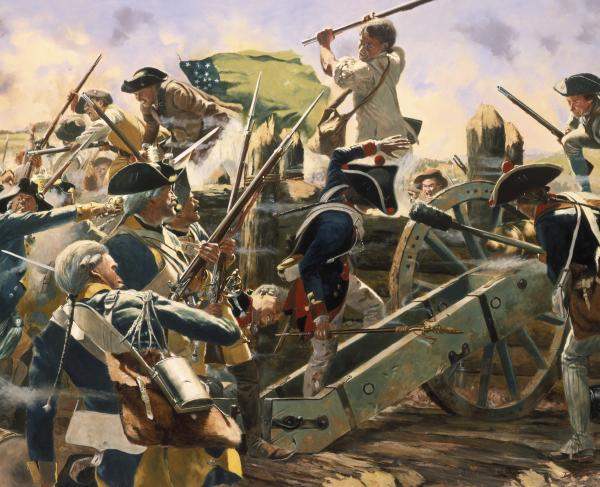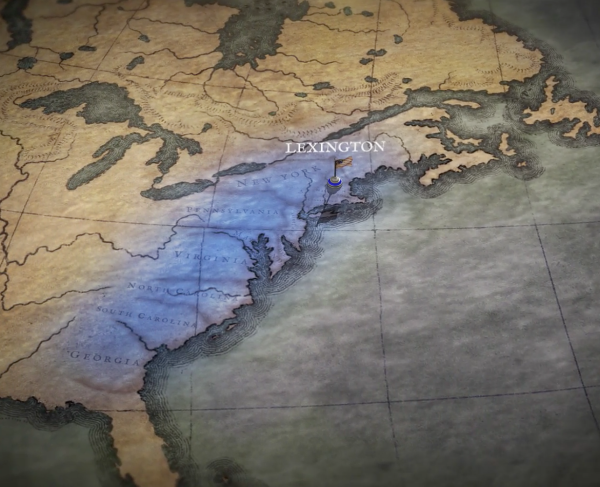
Brandywine
Brandywine Creek
Pennsylvania | Sep 11, 1777
On September 11, 1777, General George Washington was determined to prevent the British from capturing the American seat of government, Philadelphia. Taking up positions along Brandywine Creek, Washington mistakenly believed that his army blocked all fords across the Brandywine.
Opposing Washington was Sir William Howe and an army of 15,500 British Regulars and Hessian troops. Hidden by heavy fog, the British moved into position. General Wilhelm von Kynphausen was ordered to demonstrate against the Americans’ front at Chadds Ford, while the bulk of Howe’s forces crossed the Brandywine further upstream.
The battle had been raging for hours by the time Howe's force appeared undetected on the Continental right flank. Washington dispatched troops under General John Sullivan and William Alexander, “Lord Stirling,” to shore up his right flank. However, despite putting up a stiff resistance, the Continentals were eventually overrun by Howe’s men.
Simultaneously, Knyphausen’s troops hit the American units that remained near the Quaker meeting house at Chadds Ford. Washington’s line collapsed.
To prevent the defeat turning into disaster Washington ordered Nathanael Greene’s division to act as a rear-guard so that the Continental Army could escape to the northeast. Greene’s brave men counterattacked, going toe-to-toe with British along the crest of Birmingham Hill. When night fell, the remaining Americans fell back in an orderly retreat, led in part by the Marquis de Lafayette. Although wounded, the charismatic young Frenchman remained on the field to ensure an organized withdrawal.
The crushing defeat allowed the British to occupy Philadelphia, but the bulk of the Continental army survived to fight another day.
Brandywine: Featured Resources
All battles of the Philadelphia Campaign
Related Battles
14,600
15,500
1,300
587












